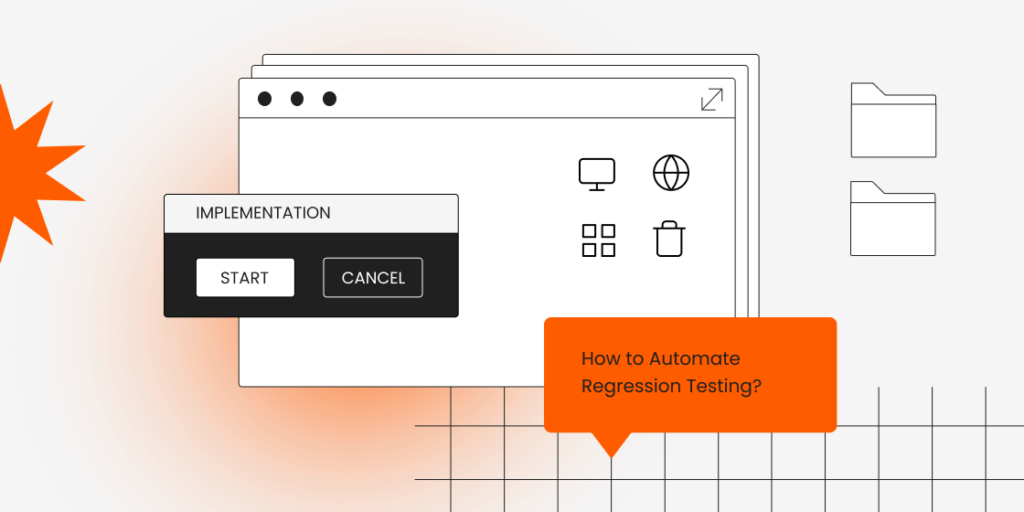Software development is a multi-phase process that includes coding, testing, and deployment.
Automated regression testing is a key component of software quality maintenance
The notion of regression testing, its significance in the software development life cycle, and the role automation plays in its implementation will all be covered in this article. Comprehending Regression Analysis
A quality assurance technique used in software development is regression testing, which verifies that recent code modifications have not negatively impacted an application’s current functions.
To find any unexpected effects that might result from code changes, bug patches, or the addition of
new features, the software or certain modules must be retested.
The objective is to prevent the introduction of any new flaws while ensuring that the new code changes are integrated with the current codebase.
Regression testing serves as a precaution to make sure that unexpected flaws do not get into the product while it is being developed.
It provides a method for maintaining the software application’s dependability and consistency throughout time.
The Importance of Testing for Regression
Since software is rarely created in a single iteration, code changes are inevitable.
Developers run the risk of creating unforeseen problems when they continuously add features, correct bugs, and optimize code.
By spotting issues early in the development process, regression testing reduces this risk.
Complex Interactions:
Software programs are made up of interdependent parts.
Modifications made to one section of the code may affect other sections as well.
Unexpected dependencies and interactions can be found with the aid of regression testing.
Assurance of Quality:
End users have high standards for software quality.
Even after multiple modifications, regression testing makes that the program retains its user experience and quality standards.
Time and Cost Efficiency:
It is more costeffective to identify and fix software problems early in the development phase rather than later or after the deployment process. Regression testing lowers the likelihood of post-release flaws, which can be costly to fix.
Why Use Regression Testing Automation?
Testing for regression is essential.
Doing things by hand might take a lot of time, be prone to mistakes, and demand a lot of resources. Test automation is useful in this situation.
Efficiency and Speed: Compared to manual testing, automated regression testing can be completed considerably more quickly.
Automated tests accelerate the development cycle and provide faster feedback on code changes because they run around-the-clock.
Consistency:
By repeating the same operations over and over again, automated tests remove the human element that could cause inconsistent results in manual testing.
Coverage:
Unlike human testing, which may be unfeasible, automated tests can cover a large range of scenarios, guaranteeing that various features and use cases are thoroughly evaluated.
Reusability: Automated test scripts can be reused for further versions when they are produced, which ultimately saves time and effort.
Regression Test Suites: By enabling the development of thorough regression test suites that can be executed as frequently as required, automation technologies can identify regressions early and stop them from spreading.
Early Bug Detection:
Automated testing identify errors early in the development cycle, which facilitates and lowers the cost of fixing them.
Conclusion
Regression testing is essential for preserving software quality and making sure that updates to the code do not create new flaws.
Automation has become essential for efficient regression testing with the use of a testing automation platform. Regression testing problems can be creatively solved with Opkey’s AI-powered test automation platform. Opkey enables both technical and non-technical users to expedite their testing procedures by fusing state-of-the-art technology with intuitive features. The large library of pre-built test accelerators guarantees thorough regression test coverage right away, and the no-code test creation feature makes the switch from manual to automated testing easier.
Regression test case selection is made easier with the help of the platform’s change impact analysis report, which offers vital insights into the possible impacts of ERP changes on business operations.
Additionally, test maintenance is transformed by Opkey’s self-healing script technology, which drastically cuts down on effort and speeds up development and testing schedules.
Opkey ensures the dependable operation of ERP connections and customizations with its thorough approach to end-to-end testing, which eventually results in cost savings, efficiency advantages, and quicker software releases.

